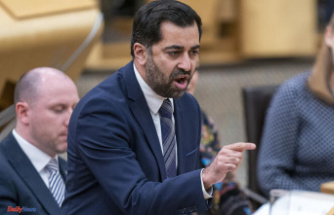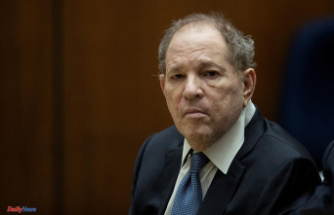President Donald Trump, signaling a potential shift on a signature issue, indicated Tuesday that he’s open to immigration legislation that would give legal status to some people living in the U.S. illegally and provide a pathway to citizenship to those brought to the U.S. illegally as children.
Meanwhile, airport officials and civil rights lawyers around the country scrambled to get ready for Trump’s new travel ban — mindful of the chaos that accompanied his initial executive order but hopeful the forthcoming version will be rolled out in a more orderly way. A draft suggested it would target people from the same seven predominantly Muslim countries but would exempt travelers who already have visas to come to the U.S.
Immigration remained in the spotlight ahead of his address to Congress on Tuesday night. “The time is right for an immigration bill as long as there is compromise on both sides,” said Trump during a lunch with news anchors. A person with knowledge of the discussion confirmed his comments to The Associated Press on the condition of anonymity.
Trump campaigned as an immigration hard-liner, vowing to build a wall along the U.S.-Mexico border and pledging to step up deportations. Since taking office, some of his policy moves have hewed closely to those promises, including new guidance from the Department of Homeland Security that would subject any immigrant in the country illegally to deportation if they are charged or convicted of any offense, or even suspected of a crime.
But the president also has suggested he is open to finding a solution for the so-called Dreamers — those who were brought to the U.S. illegally as children. Although he railed again President Barack Obama’s executive actions to protect those immigrants from deportation, Trump has not rolled back those safeguards and has suggested he has other priorities.
During a White House news conference earlier this month, Trump said he would deal with the Dreamers with “great heart” but didn’t say what his administration’s policy would be. He called their status “one of the most difficult subjects I have, because you have these incredible kids.”
Trump has flirted with a more lenient immigration policy before, saying during the campaign that he was open to “softening” his position. But he ultimately landed where he started, declaring during a speech in September that under his presidency, there would be “no legal status or becoming a citizen of the United States by illegally entering our country.”
Congress last took up immigration legislation in 2013, after Hispanic voters overwhelmingly backed Obama in his re-election campaign. A measure including a pathway to citizenship passed the Senate, but stalled in the House.
On another immigration front. the buzz continued about a revised travel ban aimed at seven largely Muslim nations, which was expected to arrive as soon as Wednesday.
Since last month’s ban, which courts have put on hold, a section of the international arrivals area at Dulles International Airport outside the nation’s capital has been transformed into a virtual law firm, with legal volunteers ready to greet travelers from affected countries and ask if they saw anyone being detained.
Similar efforts are underway at other airports, including Seattle-Tacoma International, where officials have drawn up plans for crowd control after thousands crammed the baggage claim area to protest the original ban.
“The plan is to be as ready as possible,” said Lindsay Nash, an immigration law professor at Cardozo School of Law in New York who has been helping prepare emergency petitions on behalf of those who might be detained.
Trump’s initial action, issued Jan. 27, temporarily barred citizens of Iran, Iraq, Syria, Yemen, Somalia, Sudan and Libya from coming to the U.S. and halted acceptance of all refugees. The president said his administration would review vetting procedures amid concerns about terrorism in those seven nations.
Protesters flooded U.S. airports that weekend, seeking to free travelers detained by customs officials amid confusion about who could enter the country, including U.S. permanent residents known as green-card holders.
Attorneys also challenged the order in court, including officials from Washington state. That lawsuit, which Minnesota joined, resulted in a federal judge temporarily blocking the government from enforcing the travel ban, a decision unanimously upheld by a panel of the 9th U.S. Circuit Court of Appeals.
Trump also Tuesday signed: • An executive order that moves a federal initiative supporting historically black colleges and universities directly into the White House, a move depicted as an effort to give the schools more clout within the government. Leaders from those schools said they were cautiously optimistic about the shift. They are eager for the government to raise its investment in their schools but wary of promises devoid of action.
• A resolution blocking an Obama-era rule that would have prevented an estimated 75,000 people with mental disorders from buying guns. The rule was part of former President Barack Obama’s push to strengthen the federal background-check system in the wake of the 2012 Newtown, Connecticut, shooting. But lawmakers, the National Rifle Association and even the American Civil Liberties Union criticized the rule, saying it unfairly stigmatized the disabled and infringed on their constitutional right to bear arms.
• An executive order mandating the review of a rule aimed at protecting small streams and wetlands from development and pollution. The order instructs the Environmental Protection Agency and the U.S. Army Corps of Engineers to review the Obama-era rule that redefined which bodies of water are protected under the Clean Water Act. Democrats have argued it safeguards drinking water for millions.
• A pair of bills into law aimed at recruiting more women for the fields of science, technology, engineering and math. Trump said at an Oval Office ceremony that it’s unfair that only 1 in 4 women with a degree in one of these areas works in the field.
Our editors found this article on this site using Google and regenerated it for our readers.












